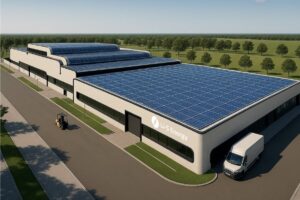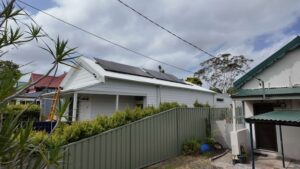New South Wales energy and climate minister Penny Sharpe has confirmed that the new state Labor government will use the proposed Energy Security Board to help much needed pumped hydro projects get across the line in the face of spiralling costs.
NSW is facing possibly the most challenging and rapid energy transition of any state in Australia, given its near total reliance on coal power in its grid and the fact that most, if not all, its remaining coal generators are likely to retire within a decade.
The new Labor government has embraced the renewable infrastructure roadmap devised by the Coalition’s Matt Kean, and Sharpe says that she is now looking at ways to accelerate that transition.
She says 1/3 of the anticipated 12GW of new wind and solar capacity needed by 2030 is already in place, or at least under contract, but a bigger task for the government is how to ensure sufficient long duration storage is built by that time.
The first long duration storage auction revealed earlier this month way to target delivered just one contract to a relatively small eight hour battery (50MW and 400MWh), which while a landmark moment for battery technology suggested pumped hydro is struggling to compete.
A second tender was launched this week, for up to 550MW of capacity for long duration storage, but once again big batteries are favoured to win, potentially leaving pumped hydro investments stranded. But more even longer storage is needed.
There are at least six big pumped hydro projects proposed by various deep pocketed investors, including the likes of AGL Energy, EnergyAustralia, Alinta Energy and Atco, but it has been suggested that growing cost pressures may mean that the ESC – which will be seeded with $1 billion of funds – may come to the rescue.
This was confirmed by Sharpe on Wednesday in a speech to the Energy Efficiency conference in Sydney.
“One of the areas I’m particularly interested in … is pumped hydro … their costs are spiralling greatly. And there’s been some hesitancy about moving forward with that.
“The whole idea of the Energy Security Corporation is not to be competing with what’s happening in the private sector, but actually to use government as the way to get projects over the line so we can get them to scale.”
Pumped hydro projects have been incredibly difficult to get built. South Australia had a shortlist of six projects that lined up for funding under federal and state supported schemes, but none have reached financial closure and most have been dumped.
Plans by Origin Energy to expand the scheme in Shoalhaven have been pulled, at least for the moment, and the massive Snowy 2.0 project is running way over time and way over budget.
Only the Kidston pumped hydro project in north Queensland (pictured above) appears to be running roughly to schedule and more or less in budget, although it needed government agencies to meet nearly the entire cost of the project.
Sharpe says the details of how the ESC will function are not yet finalised, but when it was first announced earlier this year the intent was to use it as a kind of state-based Clean Energy Finance Corporation, which mostly provides low cost debt and some equity.
The ESC will be different in function to the new State Electricity Commission (SEC) proposed by the Victoria government, which has also been funded with $1 billion by that state government but which will likely emerge as a co-investor in up to 4.5GW of new wind and solar, and possibly storage.
“There’s a lot of work to be done in terms of the final design of the of the corporation. The idea for us is about filling those gaps, being a catalyst, and looking for opportunities for acceleration, rather than just crowding out the market.”
Earlier in the speech, Sharpe talked of the need to accelerate the transition, fast track the investments required for reliability and grid stability. She also said it would be involved in the roll out of community batteries, to support the anticipated doubling in the state’s rooftop solar capacity to 10GW by 2030.
“We can make this work,” Sharpe said. “We can get the right policies in place to accelerate the transition. We don’t have a choice.”
Sharpe also said the government intended to legislate its emission reduction targets – as Victoria has already done – and said that these would be a floor and would help provide certainty to investors.
There government also intends to create an independent Net Zero Commission to help map out the pathways and support communities and industries through the green energy transition.








